Orthostatic Blood Pressure Log Samples
-
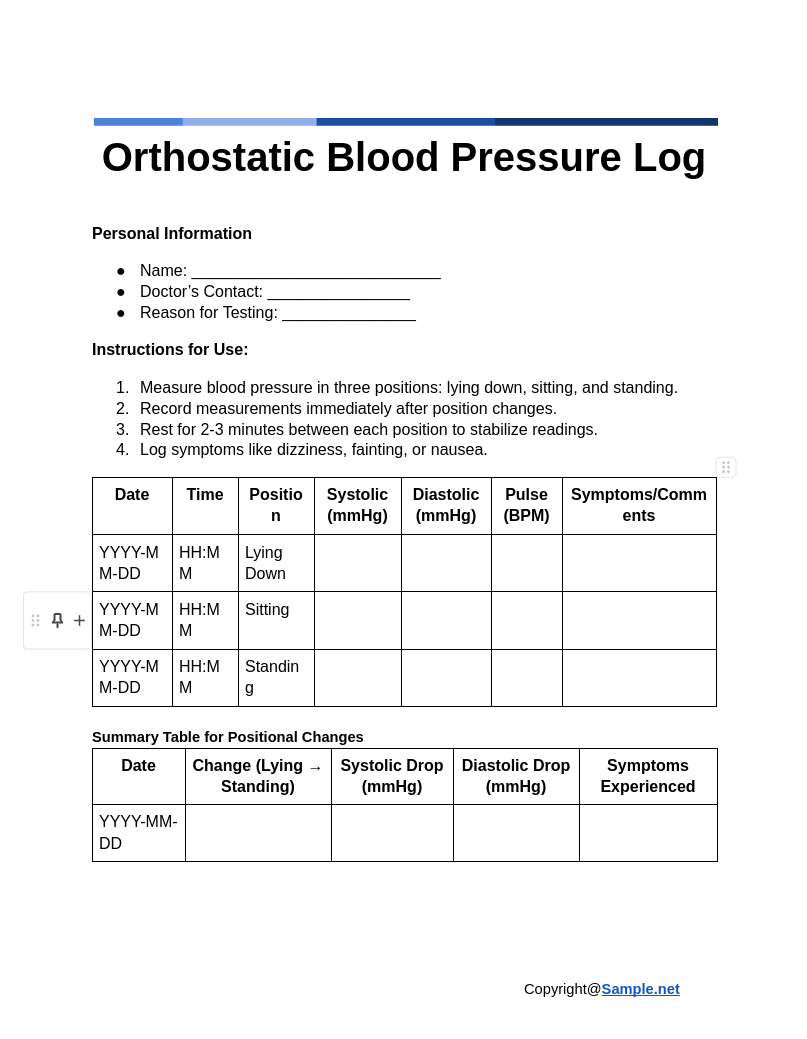
Orthostatic Blood Pressure Log
download now -
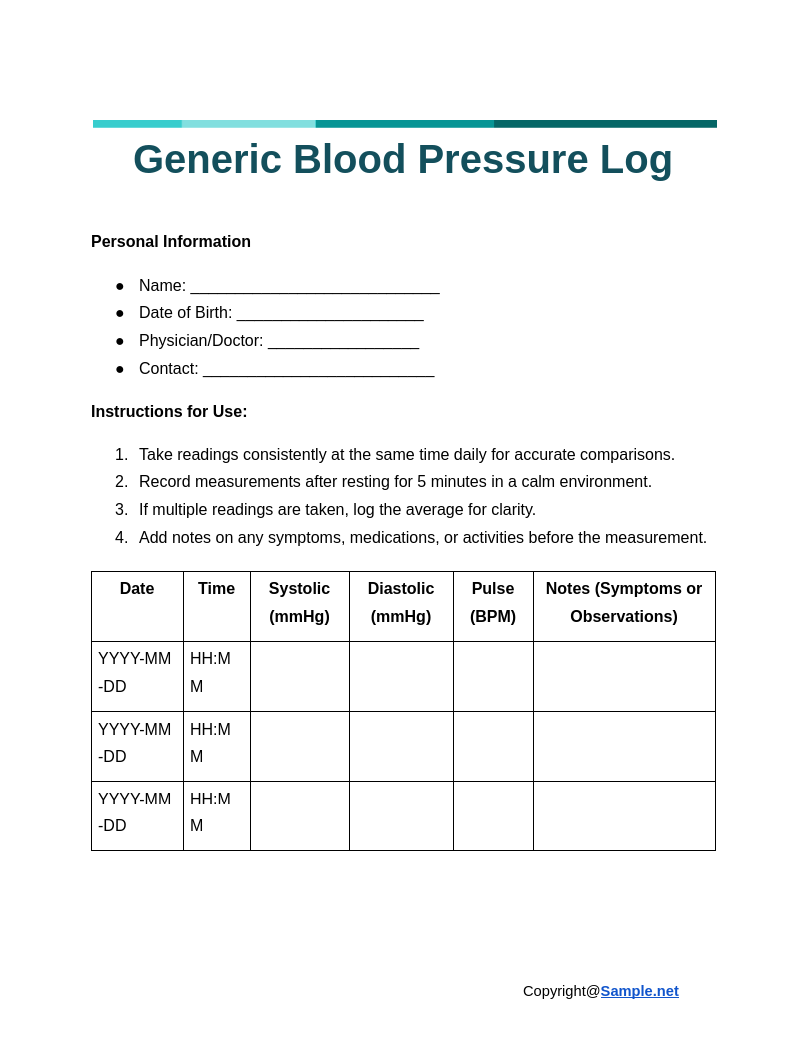
Generic Blood Pressure Log
download now -
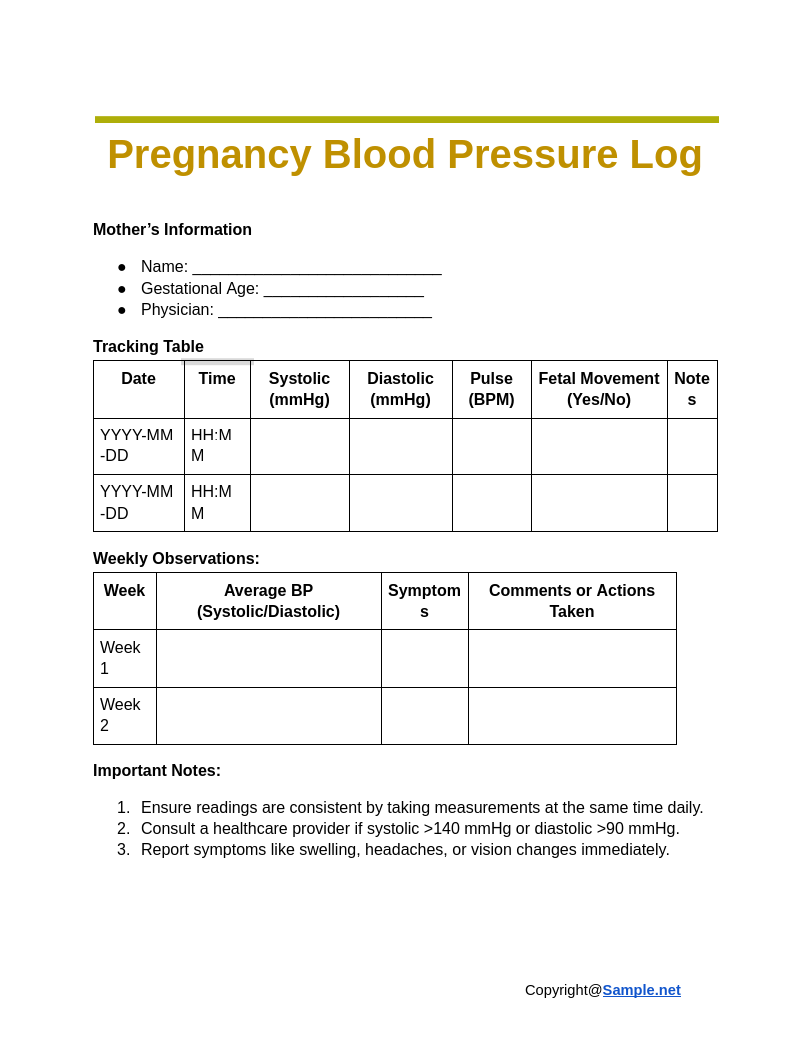
Pregnancy Blood Pressure Log
download now -
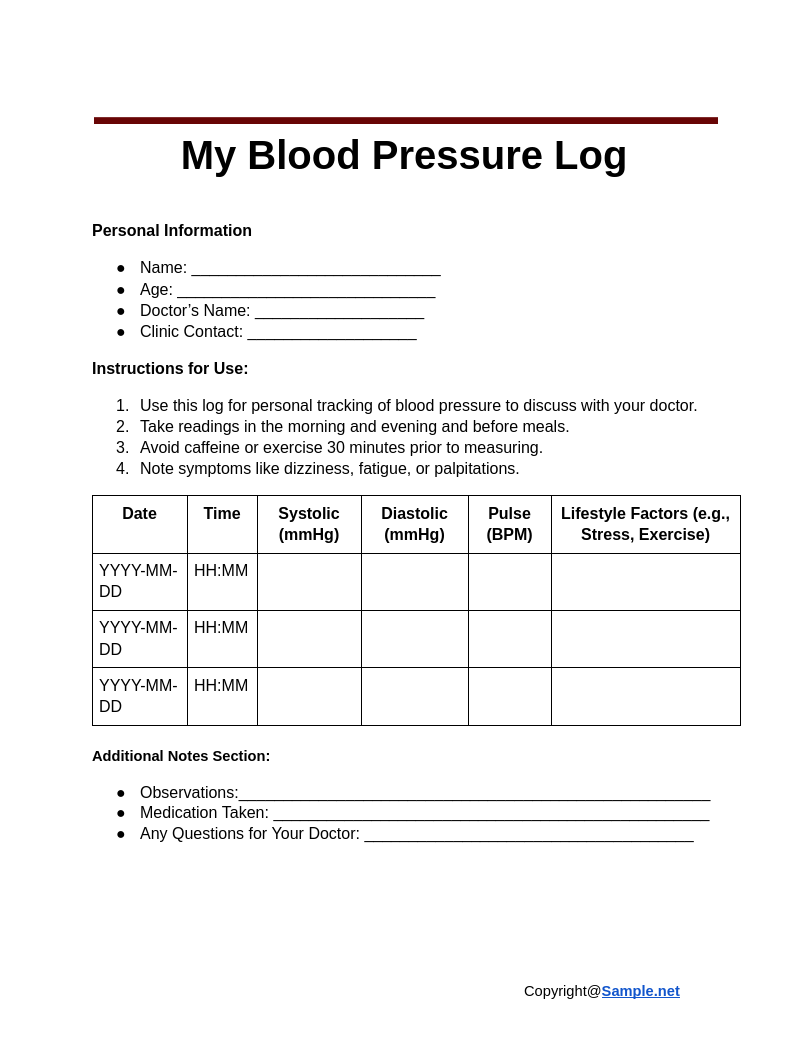
My Blood Pressure Log
download now -
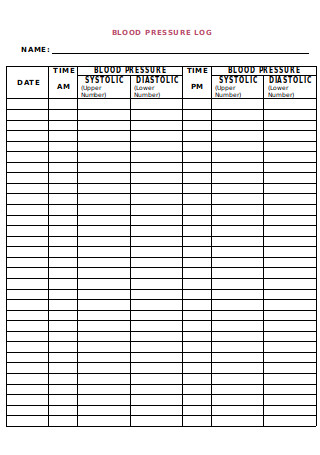
Blood Pressure Log
download now -
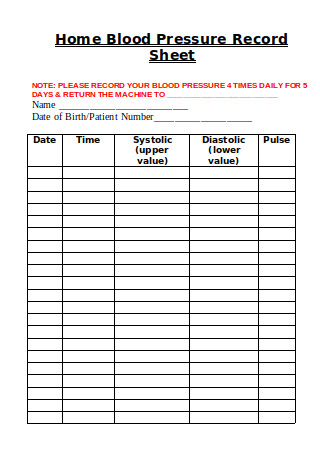
Home Blood Pressure Record Sheet
download now -
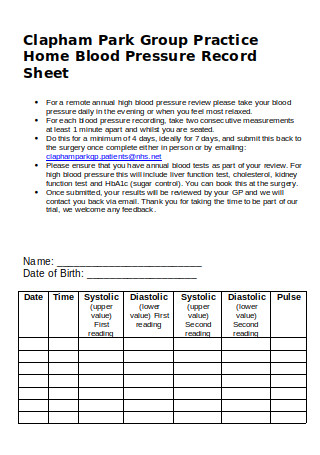
Blood Pressure Record
download now -
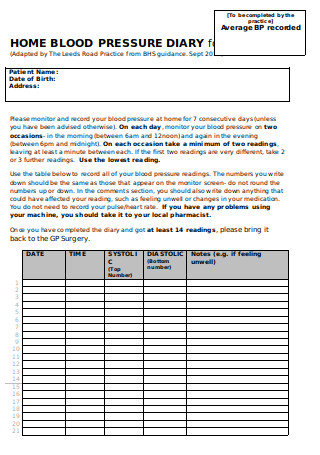
Home Blood Pressure Diary
download now -
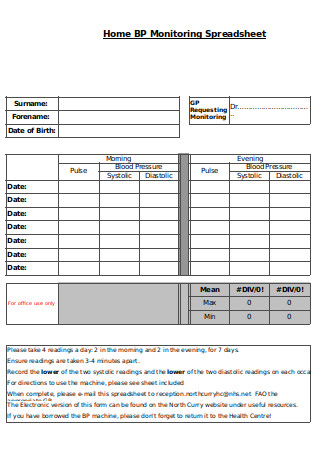
Home BP Monitoring Spreadsheet
download now -
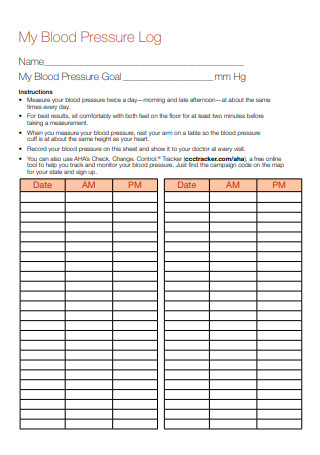
Sample Blood Pressure Log
download now -
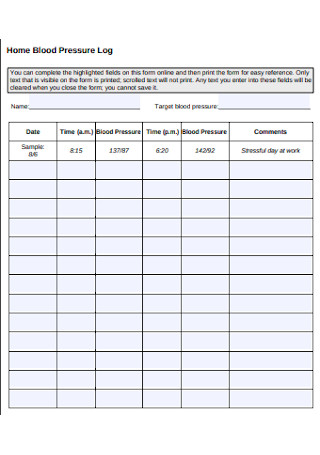
Home Blood Pressure Log
download now -
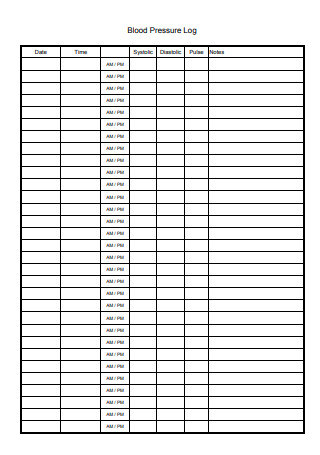
Blood Pressure Log Sample
download now -
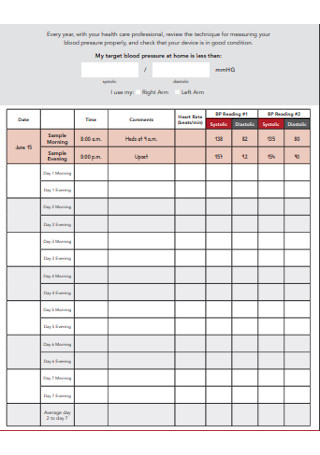
Simple Blood Pressure Log
download now -
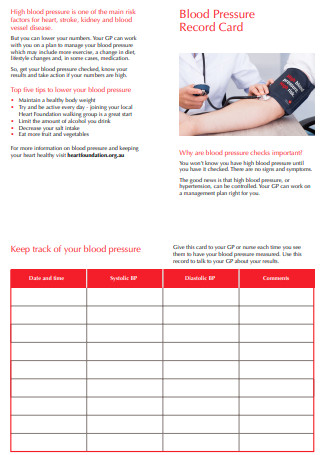
Blood Pressure Record Card
download now -
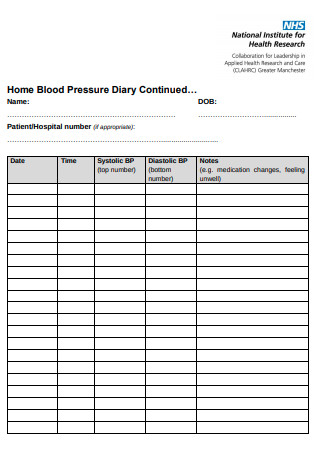
Home Blood Pressure Diary Sample
download now -
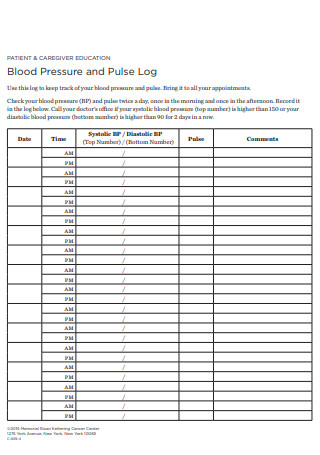
Blood Pressure and Pulse Log
download now -
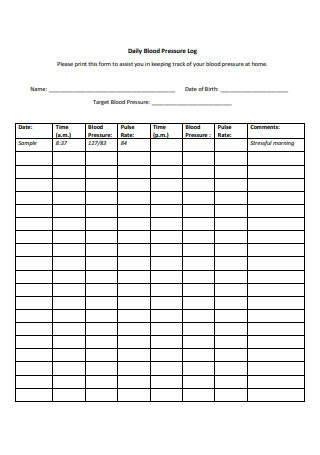
Daily Blood Pressure Log
download now -
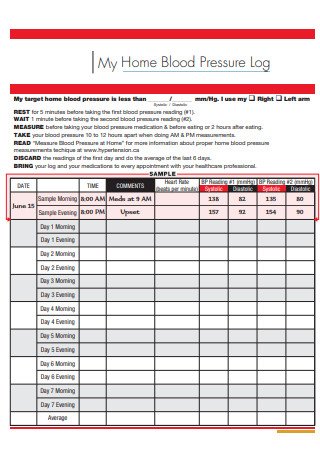
Sample Home Blood Pressure Log
download now -
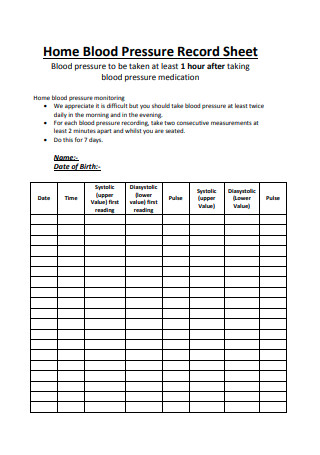
Blood Pressure Record Sheet
download now -
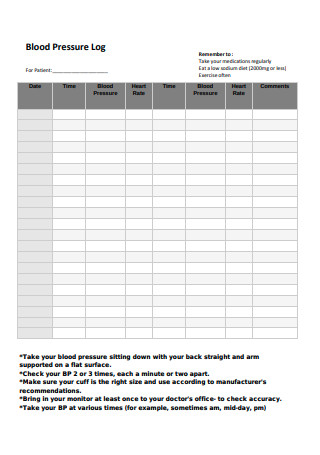
Blood Pressure Log in PDF
download now -
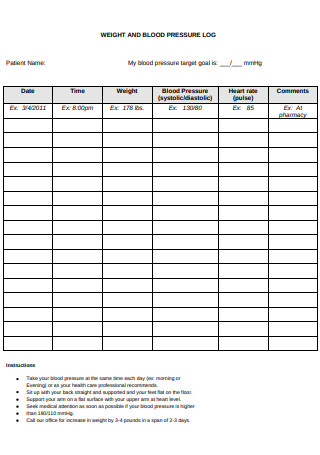
Weight and Blood Pressure Log
download now -
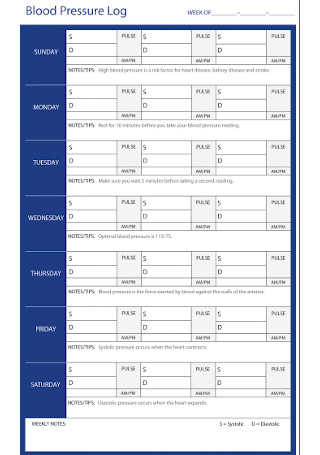
Blood Pressure Log Book
download now -
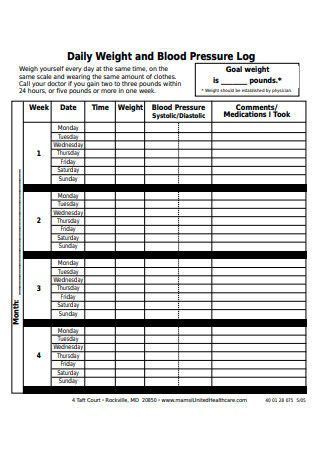
Daily Weight and Blood Pressure Log
download now -
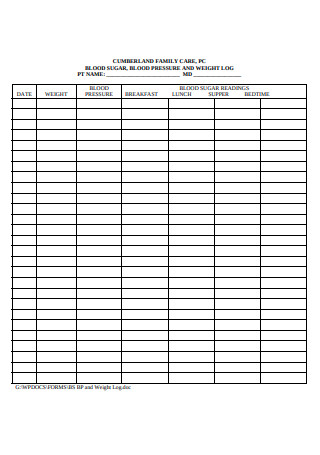
Blood Pressure and Weight Log
download now -
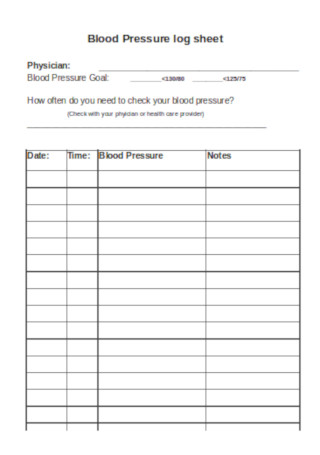
Blood Pressure Log Sheet Template
download now
FREE Blood Pressure Log s to Download
Blood Pressure Log Format
Orthostatic Blood Pressure Log Samples
What are Blood Pressure and Hypertension?
What are the Causes and Risks of Hypertension?
Hypertension and Blood Pressure: The Silent Killer
How to Manage High Blood Pressure Using a Tracker
FAQS
How does a Blood Pressure Log help in managing hypertension?
Can I share my Blood Pressure Log with my doctor?
How can lifestyle changes be tracked alongside a Blood Pressure Log?
What is the ideal range for normal blood pressure?
Can a Blood Pressure Log help prevent heart disease?
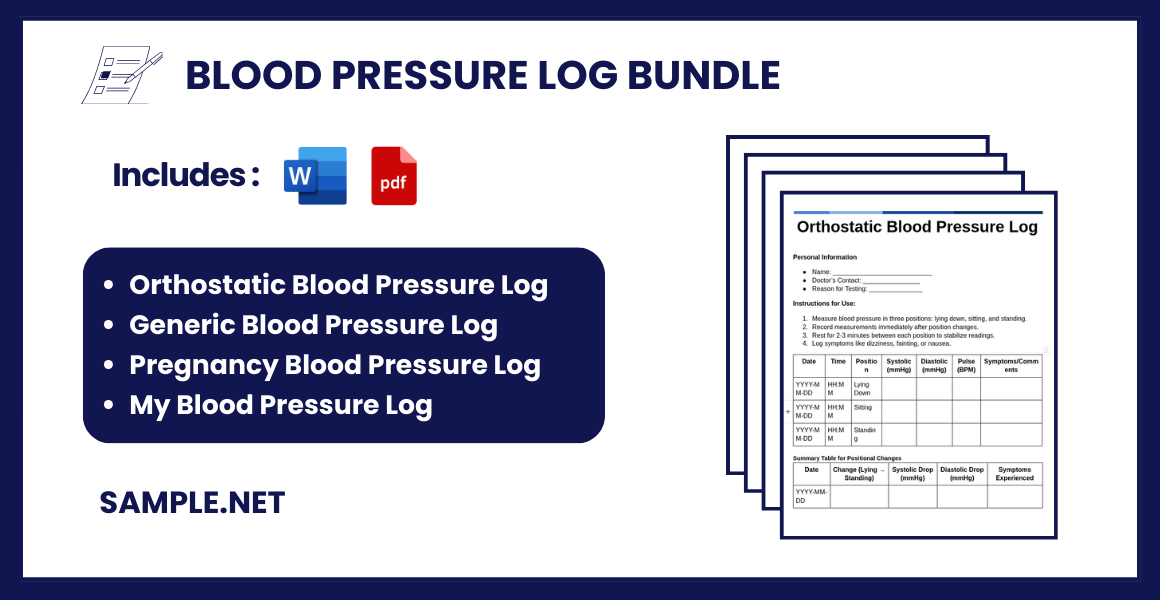
Download Blood Pressure Log Bundle
Blood Pressure Log Format
Personal Information
- Name: ____________________________
- Date of Birth: _____________________
- Physician/Doctor: _________________
- Contact: __________________________
Instructions for Use:
- Measure blood pressure at the same time daily (morning and evening recommended).
- Use a reliable and calibrated blood pressure monitor.
- Record results immediately after taking measurements.
- Include any additional notes on lifestyle or symptoms for context.
| Date | Time | Systolic (mmHg) | Diastolic (mmHg) | Pulse (BPM) | Notes (Symptoms or Observations) |
|---|---|---|---|---|---|
| YYYY-MM-DD | HH:MM | ||||
| YYYY-MM-DD | HH:MM | ||||
| YYYY-MM-DD | HH:MM |
Key Points to Record
- Systolic (mmHg): Upper number indicating the pressure when the heart beats.
- Diastolic (mmHg): Lower number indicating the pressure when the heart rests between beats.
- Pulse (BPM): Beats per minute (optional but helpful for a complete picture).
- Notes: Include symptoms (e.g., dizziness, headache) or specific activities (e.g., exercise, stress) that might influence readings.
Weekly Summary Table
| Week Starting | Average Systolic (mmHg) | Average Diastolic (mmHg) | Average Pulse (BPM) | Comments |
|---|---|---|---|---|
| YYYY-MM-DD |
What are Blood Pressure and Hypertension?
Blood pressure is the amount of force exerted by your blood as it travels through your body. Blockages or clots in the vessels can increase your blood pressure. Try to picture your garden hose as a blood vessel. Without blockages or obstructions, it flows freely at a regular rate. If you block it partially using your finger, it suddenly flows rapidly, and, in a worst-case scenario, the hose might burst. It would make it more difficult for you to water your plants or wash your car. This might also cause a leakage in the faucet attached to the hose. You can also see more on Blood Sugar Charts.
Your blood vessels function in the same way. Without blockages, blood travels quickly to your organs, providing them with that much-needed oxygen. But with obstructions, your heart has to work twice as fast to deliver the same amount of oxygen to those organs. This condition is called hypertension or high blood pressure. It’s a forerunner for other diseases like heart attack, stroke, kidney failure, to name a few. Having hypertension is a hassle as it would affect many aspects of your life, most especially work. You need to track your sick time policy accurately for any absences due to hypertension.
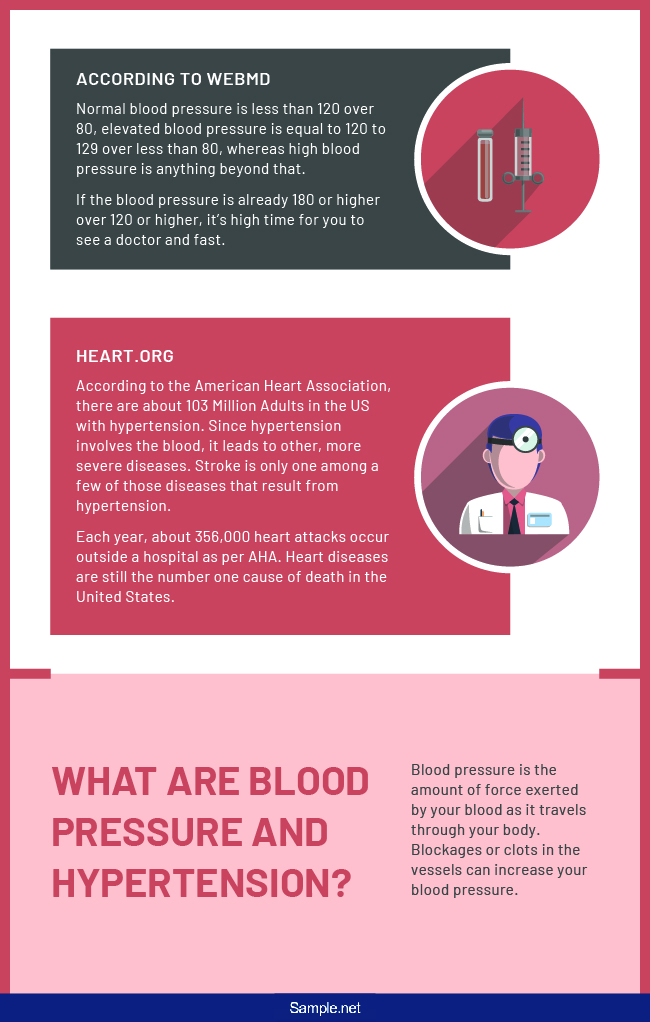
What are the Causes and Risks of Hypertension?
An unhealthy lifestyle usually causes diseases and health conditions, which you can alter most of the time. Though we understand that living healthy can be difficult and costly, the cost of maintaining medications throughout your lifetime is much higher. WebMD lists some of the possible causes of hypertension, among which include smoking, lack of physical activity, excessive salt and alcohol consumption, to name a few. Those with a family history of hypertension also have higher risks of obtaining hypertension and other heart-related diseases. Some of these factors are manageable as long as they are in moderation. You can also see more on Judging Score Sheet.
The Possibility of a Stroke
Your organs serve a purpose in your body. Each organ is equally essential, and there is one thing needed by them to function correctly: oxygen. Once you inhale these oxygens, they get transported by the body through erythrocytes that are found in your blood. They play a vital role in your body. These cells get transported in your body through a pathway called the blood vessel. If for some reason, the pathway becomes blocked or obstructed, little or no oxygen will be delivered to the organs, thus causing organ failure. If the vessel going to the brain gets blocked, the brain gets affected and may shut down. It will fail to send locomotive instructions to your extremities. It might damage some nerves, of which some parts of your body become numb or uncontrollable, and your movements become restricted. This event is called a stroke. In cases like this, you would need a health care POA to act on your behalf for all medical-related decisions. Though not all strokes are caused by hypertension, it’s the leading cause of stroke. You can also see more on Exercise Logs.
It Can Be a Precursor to Other Diseases
According to the American Heart Association, there are about 103 million adults in the US with hypertension. Since hypertension involves the blood, it leads to other, more severe diseases. Stroke is only one among a few of those diseases that result from hypertension. You can also see more on Measurement Chart.
Each year, about 356,000 heart attacks occur outside a hospital as per AHA. Heart diseases are still the number one cause of death in the United States. The heart is made up of pure muscles, and it’s the one delivering oxygen to the rest of the body. If it starts working double-time to make up for the oxygen lost during the process, it will start getting exhausted, and at some point, will stop working. This is how cardiac arrests happen. If too much blood is pumping, too much calcium may be flushed out along the way, therefore reducing bone density and causing bone-related diseases. If there is too much blood sent to the kidney for filtering, the organ may not be able to accommodate everything, thus causing kidney failure. Hypertension is no laughing matter. Therefore, it is essential to closely monitor your blood pressure and lifestyle to live a longer, healthier life and warn yourself of the early onset of heart-related diseases.
Hypertension and Blood Pressure: The Silent Killer
Sometimes, we don’t realize that we have contracted a serious illness unless we start to feel its effects. Similarly, we don’t realize that we already have hypertension until we start developing heart diseases. We often don’t realize the extent of its damage until we consult a physician. You can also see more on Company Sheet. Aside from it serving as a warning sign, there are also other reasons why we need to track or monitor our blood pressure constantly.
Of course, monitoring your blood pressure is not as easy as it sounds, as you might easily misdiagnose your symptoms. So be sure to ask your doctor or nurse on proper ways to use your blood pressure device at home. Additionally, your doctor would make use of a SOAP note to track your health progress.
How to Manage High Blood Pressure Using a Tracker
![]()
Hypertension, as we have stressed enough, is a severe health condition. Without even knowing it, it’s already done severe damage to your vessels. Once you have it, you have to have a sample checklist for the things that you should and shouldn’t do and food that you should avoid. However, there are ways to prevent or manage it. Although these are known ways to manage hypertension, you should still seek professional advice from a doctor for treatment.
Step 1. Keep Track of Your Hypertension Diet
Opt for foods that are rich in potassium, high in fiber, low in fat, and low in sodium in order to help yourself recover from hypertension.
Generally, anything that’s salty is terrible for hypertension. Salt can retain water. The excess water in your body can increase blood pressure. Thus, if you have hypertension, try to avoid salt or salty food as much as possible. Pickles are usually our favorite snack, but they have high sodium content. Canned foods also have high levels of sodium, as salt is an excellent food preservative. Sweets and sugars contribute to weight increase. Excess weight in the body can put pressure on the blood vessels. Alcohol is another thing that you need to avoid, as it increases the vasoconstricting hormones in the body. To summarize, too much salt or too much sugar is bad for hypertension. Moderation is the key to a healthy lifestyle.
There has been a proven direct link between hypertension and salt. Eating salty food makes it harder for your body to process excess bodily fluid, thus causing hypertension. Make sure to moderate the amount of salty food you eat.
Step 2. Plan Your Exercise
By increasing your exercise, you help your body efficiently process the excess fluid and improve your blood circulation. Physical activity is always the key to a healthy life. But it’s not enough to say that you will start working out or exercising. You need to get it in writing just to make sure that it’s going to be a part of your daily routine. You can also see more on Data Sheet.
Step 3. Track Your Weight
Fatty tissues will constrict your blood vessel and, in turn, increase blood pressure. Try to burn your body fats to lower the blood pressure. Additionally, a weight chart is an excellent tool to keep track of your weight.
Step 4. Document Alcohol Intake and Cut Down on It
It is no secret that excessive drinking of alcohol can lead to many serious health complications. It couldn’t be more accurate for hypertension. Alcohol increases specific hormones in the body, which constricts the blood vessels. The more you drink alcohol, the more the hormones increases, the higher the blood pressure becomes. Therefore, veer away from alcohol as much as possible.
Step 5. Cease Smoking
Smoking cessation is probably one of the hardest things to do to live a healthier lifestyle. However, smoking can not only damage your lungs but also increase your blood pressure. Abruptly quitting smoking may be impossible, so consult your doctor in ways to stop smoking.
Living a healthy lifestyle is hard, not to mention expensive. But as the old adage goes, “An ounce of prevention is better than a pound of cure.” It’s all about maintaining a healthy lifestyle. Your body is a complex structure that was beautifully and wonderfully designed, humans, have yet to clone one. No science or physics can imitate human blueprint. It’s a gift that should never be wasted. You can also see more on Data Collection Sheets.
FAQS
How does a Blood Pressure Log help in managing hypertension?
A Blood Pressure Log provides detailed records of daily readings, enabling healthcare providers to evaluate treatment efficacy and suggest necessary adjustments to medications or lifestyle.
Can I share my Blood Pressure Log with my doctor?
Absolutely. Sharing a well-maintained Blood Pressure Log offers healthcare providers valuable insights for better diagnosis and treatment planning. You can also see more on Information Sheet.
How can lifestyle changes be tracked alongside a Blood Pressure Log?
Lifestyle changes, such as diet and exercise modifications, can be noted in the comments section of the log, helping correlate these factors with blood pressure trends over time.
What is the ideal range for normal blood pressure?
Normal blood pressure is typically below 120/80 mmHg. Consistently higher or lower readings may require medical attention.
Can a Blood Pressure Log help prevent heart disease?
While it doesn’t directly prevent heart disease, a Blood Pressure Log helps track and manage risk factors like hypertension, reducing overall risk. You can also see more on Tracking Sheet.
